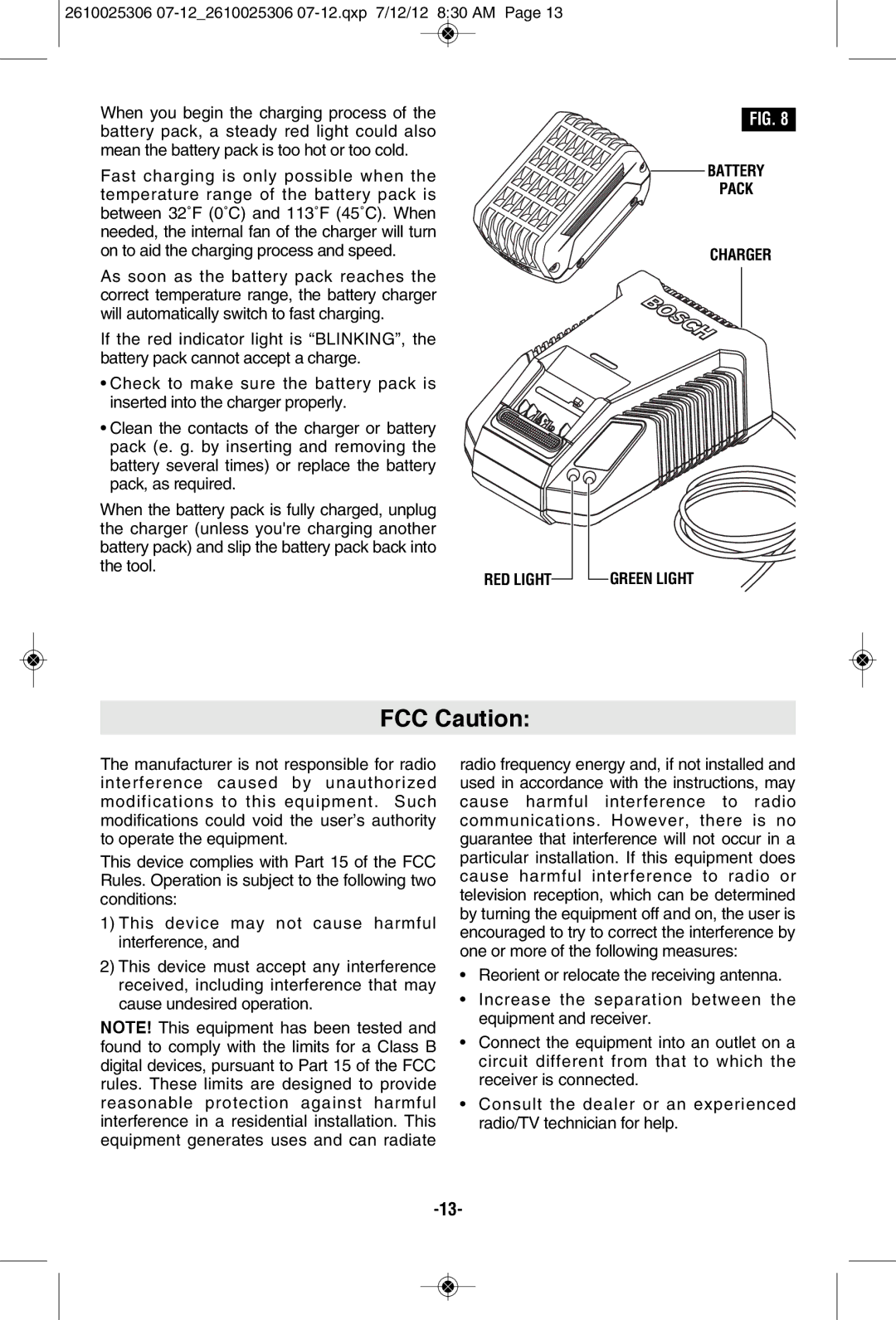
2610025306
When you begin the charging process of the battery pack, a steady red light could also mean the battery pack is too hot or too cold.
Fast charging is only possible when the temperature range of the battery pack is between 32˚F (0˚C) and 113˚F (45˚C). When needed, the internal fan of the charger will turn on to aid the charging process and speed.
As soon as the battery pack reaches the correct temperature range, the battery charger will automatically switch to fast charging.
If the red indicator light is “BLINKING”, the battery pack cannot accept a charge.
• Check to make sure the battery pack is inserted into the charger properly.
• Clean the contacts of the charger or battery pack (e. g. by inserting and removing the battery several times) or replace the battery pack, as required.
When the battery pack is fully charged, unplug the charger (unless you're charging another battery pack) and slip the battery pack back into the tool.
RED LIGHT
FIG. 8
![]()
![]()
![]()
![]()
![]()
![]() BATTERY
BATTERY ![]() PACK
PACK
CHARGER
GREEN LIGHT
FCC Caution:
The manufacturer is not responsible for radio interference caused by unauthorized modifications to this equipment. Such modifications could void the user’s authority to operate the equipment.
This device complies with Part 15 of the FCC Rules. Operation is subject to the following two conditions:
1)This device may not cause harmful interference, and
2)This device must accept any interference received, including interference that may cause undesired operation.
NOTE! This equipment has been tested and found to comply with the limits for a Class B digital devices, pursuant to Part 15 of the FCC rules. These limits are designed to provide reasonable protection against harmful interference in a residential installation. This equipment generates uses and can radiate
radio frequency energy and, if not installed and used in accordance with the instructions, may cause harmful interference to radio communications. However, there is no guarantee that interference will not occur in a particular installation. If this equipment does cause harmful interference to radio or television reception, which can be determined by turning the equipment off and on, the user is encouraged to try to correct the interference by one or more of the following measures:
•Reorient or relocate the receiving antenna.
•Increase the separation between the equipment and receiver.
•Connect the equipment into an outlet on a circuit different from that to which the receiver is connected.
•Consult the dealer or an experienced radio/TV technician for help.
